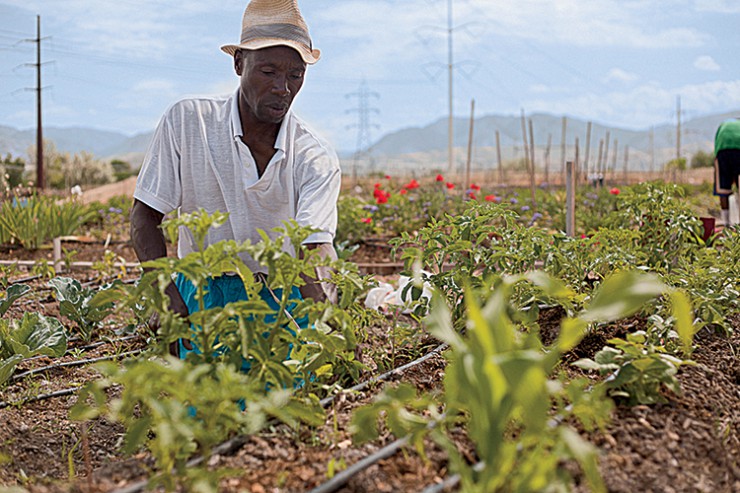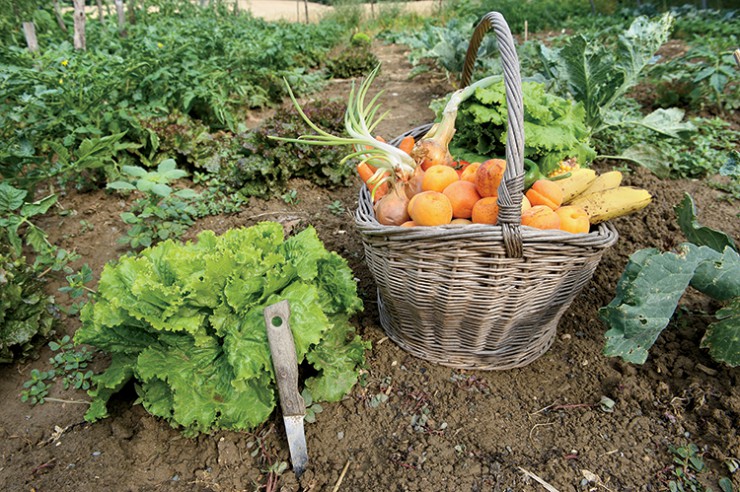Home > Utah > Utah Farm to Table > Winds of Change in Utah
Winds of Change in Utah

The way Shawn Peterson sees it, today’s agriculture is not your grandfather’s farm.
In fact, it might even be a big, yellow school bus.
As the founder and executive director of the Green Urban Lunchbox in Salt Lake City, Peterson is looking at ways to ensure that farming continues for current and future generations. It’s a matter of thinking outside the box – or the 40-acre field, for that matter.
“Farming is really changing a lot,” says Peterson, who planted and harvested his own garden at the age of 12. “It’s become competitive and is really a tough business. I wanted to look at farming from a different approach and look at possibilities for urban agriculture, to look at how people could be creative in order to make a living at farming.
“Our organization started (in 2011) with a 35-foot school bus that we turned into a mobile greenhouse. We used that to get people thinking about creative ways to grow some of their own food, to get them thinking about eating more local foods, and just starting a conversation around food and local agriculture.
“So from there, we’ve just grown as a way to meet needs.”
A Place For Young Farmers
One of the ways Green Urban Lunchbox has met needs is through its Incubator Farm Project, a community garden it established on land that has been leased from the Utah Department of Transportation. It’s 37 acres, formerly a fruit tree orchard, that had gone unused for years. Peterson’s group has transformed it into a working farm for young farmers trying to establish themselves.
In addition to providing 13 farmers with land to grow produce, the program has given them access to training, business planning support, and tools and equipment. Peterson says the number of farmers could grow to 25 in 2015.
“A lot of people who are really interested and really passionate about agriculture haven’t inherited a farm,” he says, “So how do they get started? That’s why we started our community farm program.”
Land Investment
Through a partnership with the International Rescue Committee and Salt Lake County, a program known as New Roots has created a similar farming effort for refugees who have relocated to Salt Lake City. The program provides a community garden, food access through farmstands and farmers markets, and training.
“The farm training program focuses on refugees who have a background in commercial agriculture, have grown and sold produce before, and are interested in starting farm-based businesses here in Salt Lake County,” says Grace Henley, New Roots program manager. “It’s an urban farm incubator program.”
In addition to growing domestic fruits and vegetables, the farmers also plant and harvest produce native to their countries.
“Some of those crops have become very interesting to restaurants,” Henley says, “and we’ve been able to sell a variety of unusual vegetables to restaurants in the county.”
Salt Lake County is also finding ways to bring farming to land that is otherwise unused. Through the county’s Urban Farming program, officials found county-owned space that was vacant and could be used to grow produce. The county then leased the land to area farmers.
“We keep sharing the message about how successful this partnership has been with other cities and communities and planners in various cities,” says Julie Peck-dabling, the county’s Open Space & Urban Farming program manager. “We’d like to see other cities and counties use this model, because it’s a very effective and efficient way to use land that is sitting idle.”




